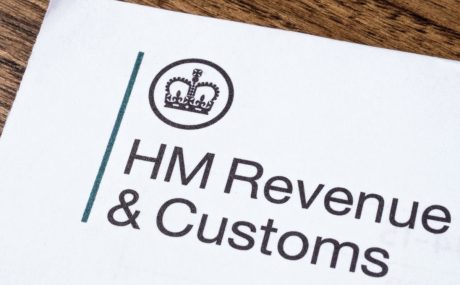Secured lenders across the UK are unhappy with the government’s decision to push through a new law which could partly or fully wipe out their security in favour of HMRC debts in a liquidation or administration. In this article, Tim Symes, a partner in our Insolvency and Commercial Litigation teams, considers the return of HMRC’s Crown preference.
We shouldn’t be surprised that when it comes to tax collection measures, you don’t get elbows much sharper than those of the government. This is especially so when it is facing a huge deficit due to a global pandemic. But the measures are controversial nevertheless.
What’s about to change?
The new rules will make HMRC a preferential creditor for certain tax debts, but it will remain an unsecured creditor for others.
At the moment, HMRC sits entirely in the unsecured creditor camp in relation to unpaid taxes. The new legislation will change this. Instead, HMRC will (for some of its debt at least) now be counted as a preferential creditor. It will hold an elevated position not only above unsecured creditors but floating charge creditors too.
When is this changing?
The passing of the Finance Act 2020 in July this year means that this change will occur in less than five weeks.
In any liquidation or administration commenced after 1 December 2020, HMRC will have a special claim to the assets of insolvent companies at the direct expense of secured lenders and unsecured creditors.
What is a floating charge creditor?
A floating charge creditor is simply a creditor with security over fluid assets such as stock, cash or debts.
A fixed charge creditor is one typically with security over assets such as premises, plant and machinery. The distinction is ultimately dependant on the extent to which the lender can control the use or disposal of the charged asset by the borrower.
What are the categories of creditor?
There are four kinds of creditor in an insolvency: fixed charge, preferential (eg employees), floating charge (usually banks and other lenders), and unsecured (typically trade creditors and HMRC).
Crown preference returns
Nearly 20 years ago, HMRC enjoyed Crown preference until it was axed by the Enterprise Act 2002. The abolition was widely welcomed as it meant that both secured and unsecured creditors would receive better-sized dividends out of a formal insolvency process so giving secured creditors more confidence to lend.
Which taxes will be preferential and which won’t?
This preferential status will only apply to taxes collected by a company on HMRC’s behalf such as VAT, PAYE, employee national insurance contributions and construction industry scheme deductions. It won’t, therefore, apply to taxes such as corporation tax.
It will make no difference whether the insolvent company still physically holds the monies collected for HMRC in the above categories: HMRC’s claim is against the assets, cash or otherwise. Indeed, in most insolvency situations, the company will not have the collected tax money any more, having used it to bankroll other parts of the business in a bid for survival.
Will there be less lending as a result?
It will now be impossible for lenders to accurately assess the risk and extent of non-recovery of the lending. Unless that is, the lender can predict how much of the tax to be collected by the borrower will not be paid over to HMRC, which is, of course, a nonsense.
Where lending is made, therefore, the lender will want to put in controls that monitor compliance with the borrower’s obligations to pay collected taxes to HMRC. They may include covenants in the loan agreements to maintain those obligations.
Will there be less desire to borrow?
Any reluctance to lend could be mirrored by a reluctance to borrow. Businesses incorporate to limit the liability of their owners and directors. However, if a lender perceives its security against a company’s assets as insufficient, it will ask for personal guarantees from the company’s directors. Such a notion is, however, anathema to many business owners. Pledging (in effect) the family house to underwrite a business initiative may be a step too far for many.
Instead, the danger is that business leaders adopt a ‘steady as she goes’ policy. This will lead, at best, to stagnation of their businesses and consequent suppression in the growth of the wider economy. At worst, it will lead to under-investment in the company and its failure.
Will the cost of lending increase?
It seems reasonable that the cost of lending will increase, given that lending is priced on risk. We may, therefore, expect to see a hike in take-on fees and interest. In addition, we can expect stricter loan to value ratios so that lenders can enforce their security at an earlier stage.
Should lenders act now?
If a borrower has defaulted on its loan, is highly distressed and has no obvious plan to improve its situation, then appointing administrators before 1 December 2020 could be the most rational step to take. Where those pressure points are not apparent, lenders should be thinking now about the adequacy of the borrower’s reporting obligations regarding payment of collected taxes and ensuring the existing covenants deal with these obligations appropriately.
Conclusion
HMRC may have more support for these new tax collection measures since we have witnessed the frighteningly large sums being paid out by the chancellor in response to the Covid-19 pandemic. The consequent expectation is that we will all be paying more tax in one guise or another to pay for it.
Nevertheless, reinstating Crown preference is a risky measure. It assumes the benefit of the additional revenue that will be raised (estimated at just £185m) will outweigh the potential wider damage to lender and borrower confidence in relation to loan transactions worth many times that sum.
A particular challenge for the government will be how they justify the expected increased use of winding up petitions by HMRC to bust the very same companies they have been at pains to save though the furlough scheme, guaranteed loans and tax breaks.
Lisa Vanderheide, a tax director at Stewarts was quoted in yesterday’s FT about HMRC’s move up the creditors’ list due to its new preferential status. Click here to read the full piece in the FT. Subscription required.
You can find further information regarding our expertise, experience and team on our Contentious Insolvency and Commercial Litigation pages.
If you require assistance from our team, please contact us or alternatively request a call back from one of our lawyers by submitting this form.






